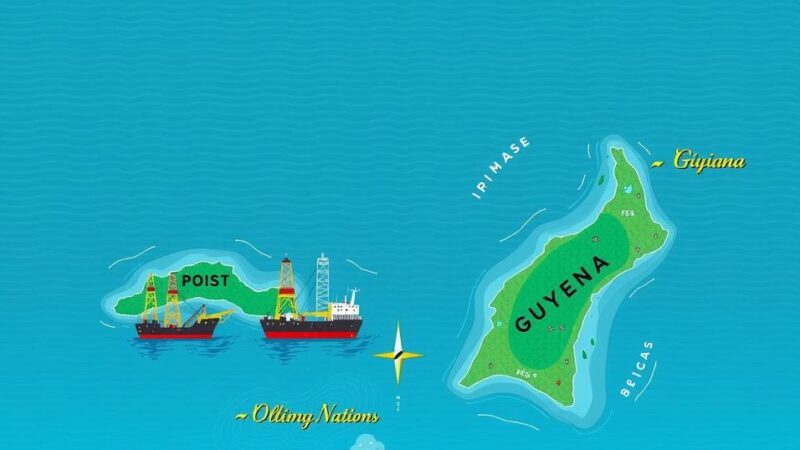Marco Rubio declared South African Ambassador Ebrahim Rasool persona non grata after Rasool’s critiques of Donald Trump’s political rise, linking it to white supremacy. This move has sparked diplomatic repercussions as South Africa’s government emphasizes the importance of maintaining relations with the U.S. Rasool’s comments reflect broader discussions on race, demographics, and historical injustices.
On March 14, Marco Rubio, the Secretary of State during the Trump administration, publicly declared South African Ambassador Ebrahim Rasool as persona non grata, thereby revoking his welcome in the United States. This declaration followed Rasool’s comments which criticized the political climate and the rise of Donald Trump in American politics, a view that has generated significant controversy.
Rubio expressed his disapproval of Rasool’s statements via social media, describing him as a “race-baiting politician who hates America and hates POTUS.” The basis for his condemnation stemmed from Rasool’s identification of the MAGA movement as an outcome of white supremacist sentiments, which he discussed during a seminar organized by a South African think tank.
In his presentation, Rasool highlighted that the MAGA movement responded to demographic shifts within the United States, where projections suggest that the electorate will soon consist of a majority of minorities. He referred to certain narratives surrounding victimhood and white supremacy as having contributed significantly to Trump’s political ascendance.
The South African government responded to Rasool’s expulsion with a statement stressing the importance of maintaining amicable diplomatic relations with the United States. Vincent Magwenya, spokesperson for South African President Cyril Ramaphosa, described the expulsion as “regrettable” and urged adherence to diplomatic norms.
Historical contexts surrounding land ownership and racial inequality were central to Rasool’s argument. Trump previously claimed that white farmers in South Africa were losing their land, a narrative rejected by South African authorities. They articulated that the majority of farmland is still held by a small white minority, contradicting Trump’s assertions and revealing the complexities of post-apartheid realities.
Ebrahim Rasool experienced firsthand the oppressive familial displacements during apartheid, which adds a personal dimension to his critiques of perceived white victimhood. Scholars, such as Nicky Falkof, challenge the narrative of white South African oppression by linking it to broader structures of white supremacy and victimhood mentality, suggesting these notions worsen societal divides.
Overall, the incident encapsulates a clash between differing political narratives and historical contexts, revealing the fraught relationship between the United States and South Africa, as well as the repercussions of international diplomatic discourse on domestic politics.
In summary, Marco Rubio’s expulsion of Ebrahim Rasool highlights a significant diplomatic incident rooted in contrasting political perspectives regarding race and demographics in America. Rasool’s comments elucidate the MAGA movement’s ties to demographic changes and white supremacist ideologies. The South African government’s response emphasizes a desire for continued cooperation with the U.S., despite Trump’s misrepresentations of the realities in South Africa. The ongoing debate over white victimhood further complicates global dialogues on race and power dynamics.
Original Source: www.blackenterprise.com






